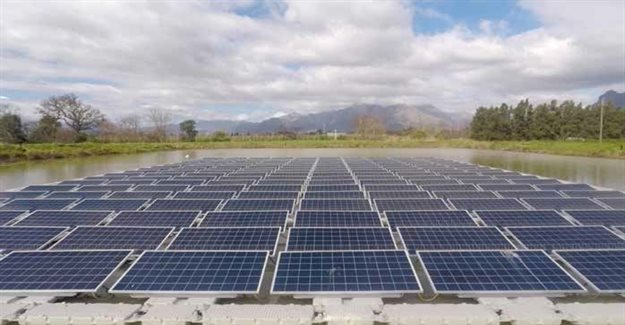
Subscribe & Follow
Advertise your job vacancies
Jobs
- Receptionist Blackheath
- Senior Bookkeeper Somerset West
Renewable energy the way to go
Access to reliable, affordable power is becoming increasingly problematic in South Africa, resulting in producers switching from the national grid to alternative energy from renewable sources. Solar energy and other renewable sources enable producers and agribusinesses to continue operating when there are interruptions due to load shedding or cable theft, thus ensuring that productivity is not affected.

The impact that load shedding and power cuts can have on farming operations – especially those that depend on electricity for their irrigation, pack house cooling systems and cold rooms – can be severe for both the businesses and economy. Nedbank is committed to developing solutions that will ensure the sustainability of the agricultural sector, says Daneel Rossouw, divisional agricultural manager for the southern division at Nedbank Business Banking. Its leadership position in for instance renewable-energy finance is helping many producers and agribusinesses benefit from more cost-effective and cleaner power generation than the national grid can provide.
“The global Sustainable Development Goals (SDGs) have been developed as the blueprint for achieving a better and more sustainable future for all,” he says. “Nedbank has prioritised nine of the 17 global SDGs as they potentially entail banking solutions and guide its sustainable development activities.”
Nedbank recently financed South Africa’s first commercial floating solar farm. This innovative development was installed at Marlenique farm near Simondium, Paarl, by Boplaas, one of the oldest farming operations in the country. The owners started investigating renewable-energy projects last year due to the increasing cost of electricity and associated carbon emissions. The pioneering solar park can now produce 60 kW energy and is used to power almost everything on the farm, from irrigation pumps to the machinery used in the packaging of fruit for export. Infrastructure has been installed to allow for a battery system to take the farm completely off the grid in the second phase of the project. Because the floating solar farm is built on one of the water storage dams used for irrigation, it doesn’t occupy productive land to generate power, while also significantly reducing evaporation from the dam.
Agribusinesses that want to apply for renewable-energy finance should shop around for suppliers, equipment and solutions as they would for any acquisition of a large asset, Daneel advises. “Speak to fellow producers and agribusiness owners who’ve embarked on the renewable energy journey to gain insight into the performance and professionalism of their installers. Remember to determine their level of satisfaction with the actual energy delivery and use against the promised specifications.”
Nedbank has partnered with the South African Photovoltaic Industry Association to develop the PVGreenCard (pvgreencard.co.za), which provides the peace of mind that the installer is qualified, follows the latest industry guidelines, uses quality components, specifies the system correctly, installs it properly and warrants that it will perform to specification. “We’re proud to use our core business to provide access to affordable clean energy and contribute to the sustainable growth of South Africa’s agricultural sector,” Daneel says.
Daneel Rossouw • 0860 555 333 • agriculture@nedbank.co.za






